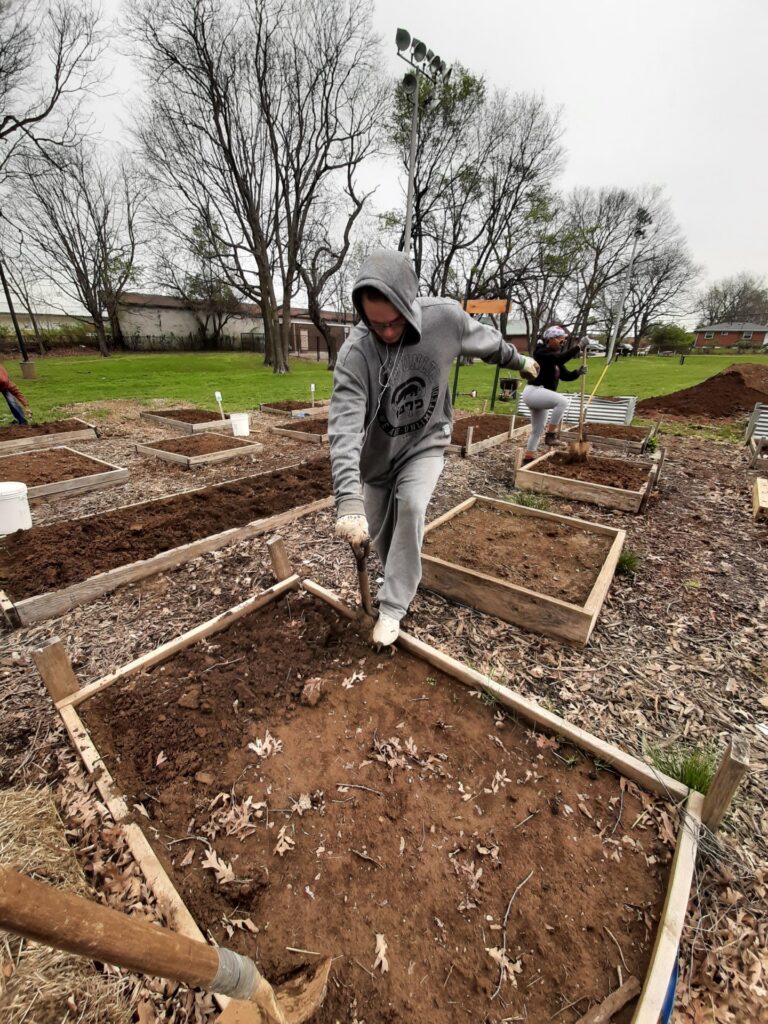Lexington, KY — At age 17, Drake knows all too well how one very bad decision can detour a kid’s life. Through Youth Advocate Programs (YAP), Inc., he also sees how unconditional support and guidance can give young people tools to account for their mistakes while redirecting their lives on a positive course.
Alternatives to Detention and Diversion Programs Director Ashley Randall with Drake
“Drake became a role model for his peers and due to his amazing turnaround and resilience, was dubbed “ValeYAPtorian” and gave a speech at our YAP graduation,” said former Kentucky YAP Assistant Director Delaney Harris, who said her team also awarded him the organization’s Visionary award.
Drake was 16 when he first heard about YAP.
“I had been getting into fights,” he said. “I had anger issues, anxiety, and depression. I was spiraling downwards.”
YAP partners with justice, child welfare, behavioral health, educational and other systems to deliver community-based services as a more effective, equitable and economical alternative to youth incarceration and group residential placements. In recent years, cities have partnered with YAP to incorporate the national nonprofit’s culturally responsive model in efforts to curb neighborhood violence. The key to the model is using zip code recruitment to hire and train community-based staff to deliver individual and family services in homes, schools, and other community sites.
Drake’s High School’s Youth Services coordinator referred him to YAP’s school-based program that conducts group sessions on positive conflict resolution.
“I had a really rough life growing up,” Drake said. “Things kept happening; things kept building up.”
Drake said he wasn’t one to initiate fights; but by the time he was 15, if someone started with him, he would let the anger out. He said the YAP group meetings at school helped, but managing his feelings wasn’t easy.
“It was difficult; I was new to the whole self-improvement thing. Going to the meetings, I learned a few skills; but it was hard to change.”
Drake showed steady improvement, enough for YAP to give him a peer leader role in a follow-up conflict resolution session. Drake said when that term ended, his anger resumed and continued to get him into trouble at school. The school reconnected him to YAP, but this time with its diversion program. Diversion offered him community-based YAP services as an alternative to more punitive youth justice system approaches. Drake said at the time, he was facing complex personal and family-related challenges.
“Then my anger, depression and anxiety kept getting worse,” he said. “I made a big mistake and got locked up.”
It was his first involvement with the justice system. But the charges were serious.
Program Director Ashley Randall said YAP appeared at every court hearing, speaking up, and advocating passionately for Drake to not be charged as an adult.
“If he were to be charged as an adult, he would look at eight to 10 years,” said Kentucky YAP Assistant Director Delaney Harris.
During his three months awaiting adjudication in a youth facility, Drake received regular visits from his family and his YAP team.
“Between myself, his advocate Alysha Wilson, and another advocate Ben Randall, someone went to visit Drake every single week, hoping to keep his spirits up,” Harris said. “During his time in placement, he made the decision to get his life together and strive to be the best person he could be despite his past actions.”
Harris said Drake spent his time journaling, reading, studying, completing schoolwork, and working out.
“That’s when it really started to kick in. I realized I had to do it for me,” Drake said.
True to the nonprofit’s youth and family wraparound services model, conversations focused not on his mistakes and what landed Drake behind bars, but on his strengths.
Drake said he came to appreciate his positive attributes. “I’m smart; I care about and want to help my family,” he said.
Harris said Drake is also resourceful; that working with him, the YAP team has been able to connect his family with gas cards, food pantries and other basic needs resources.
“He always worries about his little sister, making sure she has something to play with, wanting her to have things to do — coloring books, markers and crayons,” she said.
As part of his probation, Drake continued to receive services from YAP as a participant in the nonprofit’s alternative-to-youth-incarceration program.
“When he was released to the community, he began right away implementing the changes he was making. He participated in several volunteer activities, such as the community garden, and was happy to help every time,” Harris said. “He continues to showcase his new mindset and continues to give back to his community and be a positive contributing member of society, when things could’ve easily gone the other way.”
Drake graduated early from high school. He has a part-time job at a nearby restaurant and is putting in applications for construction work.
“Alysha comes and gets me; I’ve started learning more skills,” he said. “All the people are really nice and supportive. I never feel I’m talking to a wall.”
Drake has learned a lot about trauma and its impact on decisions people make. He also understands and is experiencing the power of community and a strong family foundation.
“I want to keep working to help my family,” he said, going on to explain the importance of his family in his journey. “I live with my mom and my siblings. My grandma on my dad’s side — she helped raise me. Any time I start to feel down, she’s there. And she’s there when I’m doing well. I am doing well. And I’m going to continue to do well.”
Learn how more about YAP, apply to join the team, or donate to support the nonprofit at www.YAPInc.org. You can also support YAP by following the nonprofit on Twitter @YAPInc.
